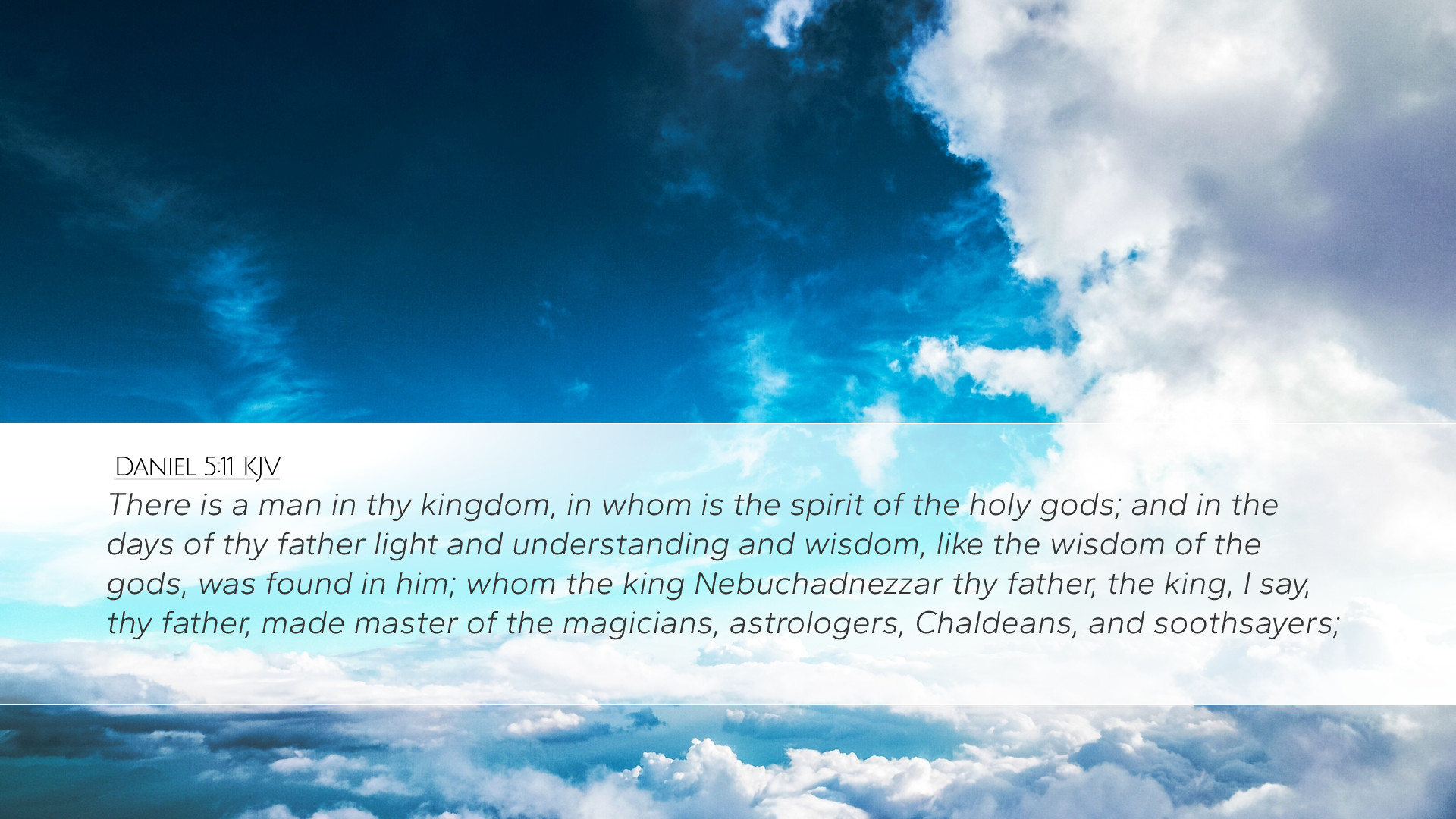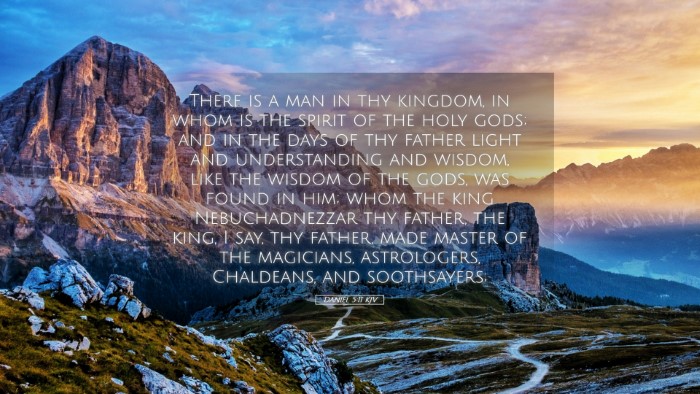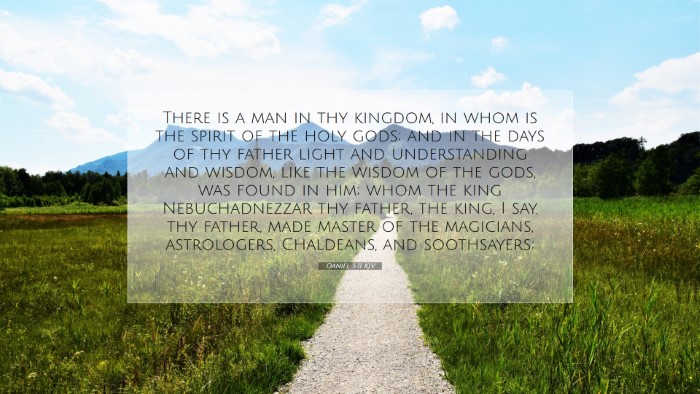Old Testament
Genesis Exodus Leviticus Numbers Deuteronomy Joshua Judges Ruth 1 Samuel 2 Samuel 1 Kings 2 Kings 1 Chronicles 2 Chronicles Ezra Nehemiah Esther Job Psalms Proverbs Ecclesiastes Song of Solomon Isaiah Jeremiah Lamentations Ezekiel Daniel Hosea Joel Amos Obadiah Jonah Micah Nahum Habakkuk Zephaniah Haggai Zechariah MalachiVerse
Daniel 5:1 Daniel 5:2 Daniel 5:3 Daniel 5:4 Daniel 5:5 Daniel 5:6 Daniel 5:7 Daniel 5:8 Daniel 5:9 Daniel 5:10 Daniel 5:11 Daniel 5:12 Daniel 5:13 Daniel 5:14 Daniel 5:15 Daniel 5:16 Daniel 5:17 Daniel 5:18 Daniel 5:19 Daniel 5:20 Daniel 5:21 Daniel 5:22 Daniel 5:23 Daniel 5:24 Daniel 5:25 Daniel 5:26 Daniel 5:27 Daniel 5:28 Daniel 5:29 Daniel 5:30 Daniel 5:31

